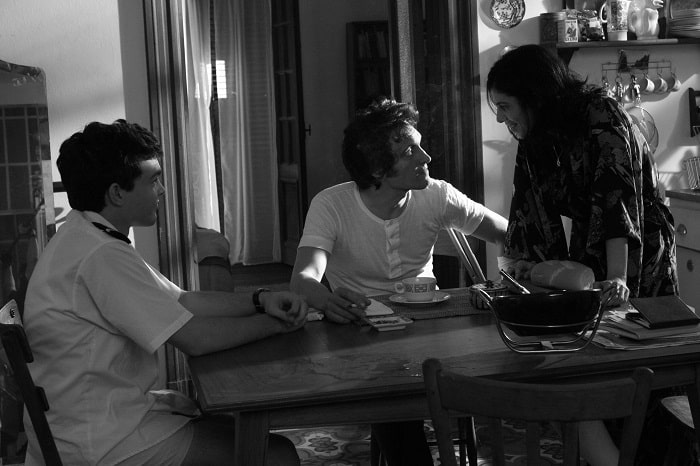Every month, we at The Spool select a filmmaker to explore in greater depth — their themes, their deeper concerns, how their works chart the history of cinema, and the filmmaker’s own biography. For April, we revisit both the game-changing hits and low point misses of Francis Ford Coppola. Read the rest of our coverage here.
After long and celebrated careers, certain directors reach a point where they’ve accomplished most of what an artist could reasonably hope to accomplish. They’ve gotten at one time or another critical acclaim, commercial success, popular recognition, and hopefully personal satisfaction. And with time, they become that fabled thing – the Old Master. They may, at this point, lack the industry clout or the financial resources that they once had, but they retain an immortal distinction, a legacy that can’t be erased. Some of them, like George Lucas, openly fantasize about using their tremendous wealth to turn away from popular movies and into experimental work. Others, like Martin Scorsese, hold enough influence to keep making major films, but often it seems like they’re unable to make a small film again. Francis Ford Coppola went ten years without directing before returning, in his seventies, to the game with Youth Without Youth and in his 2009 film Tetro he made a most interesting thing – a young man’s film.
In the historic neighborhood of La Boca in Buenos Aires, Bennie (Alden Ehrenreich), an 18-year-old American, reunites with his older brother Angelo (Vincent Gallo). Angelo’s girlfriend Miranda (Maribel Verdú) is delighted to meet young Bennie – even younger than she expected – but Angelo remains aloof, even bitter. And he’s not Angelo anymore, he’s Tetro. In these opening scenes, the evocative black-and-white photography of Mihai Mălaimare Jr. announces that Coppola will be drawing on traditions that predate even his own era, recalling a period of time situated somewhere between Italian Neorealism and the French New Wave. The world of Angelo/Tetro seems, too, to be an old one. Without being deliberately anachronistic, the film largely eschews things like cell phones, the internet, even television, not to mention modern pop culture. Taken together, all of this gives off the strange impression that Tetro is somehow not a late-in-life work from an Old Master, but the film that Coppola would’ve wanted to make as a young film student nearly fifty years before.

Bennie and Tetro, like Coppola, come from a distinguished family of artists. The head of the family, Carlo Tetrocini (Klaus Maria Brandauer), is a world-renowned composer, born in Argentina of Italian parentage, now living in America. Tetro was once a promising writer of fiction, but now he’s escaped to Buenos Aires, having cut off contact with his family, working part-time as a lighting designer for stage shows that he loudly mocks. Bennie, on the other hand, is a youth with seemingly no higher aspirations, no artistic ambition. But over the course of the film, Bennie, and the audience, slowly piece together the story that explains how Angelo became Tetro, and of the lies and manipulations that tore apart the family and led him to become the kind of insufferable person who would be played by Vincent Gallo.
In his 2009 film Tetro [Coppola] made a most interesting thing – a young man’s film.
There is a kind of pretention in both Tetro and Tetro that could easily grate on the viewer. Self-consciously artsy touches like ballet fantasy sequences and lines of dialogue like “At this moment, my light is the truth,” and “Language is dead,” test the audience’s patience, but the ultimate effect is, bizarrely, often relaxing rather than overbearing. It sounds counterintuitive, but watching Coppola, a director who has nothing to prove, throwing himself earnestly into what often feels like a student film, a film bristling with a young man’s insecurities, the viewer feels like they’re watching a man throw off decades of regrets and jaundiced perspective to reemerge with the open eyes and heart of youth, when the world seems larger and both pain and pleasure feel fresher.
Not everything in Tetro works – particularly a scene involving a menage a trois that feels like a horny male fantasy at odds with any reality – and if one described it as “meandering” they wouldn’t be wrong, exactly. Yet there is a sincerity behind the film that even makes Gallo’s acidic Tetro palatable as part of a larger portrait of a family in crisis. And Alden Ehrenreich, then a newcomer to the movies, gives the kind of warm and guile-free performance that people new to screen acting are particular suited to giving. Tetro is clearly inspired by Coppola’s life in a family where – contra what Brandauer says at one point in the film – there is room for more than one genius, but where anxieties and rivalries still torment. But there’s an equality of empathy in the film, so that it’s hard to tell if Ehrenreich’s young Bennie is meant to reflect Coppola, or if the closer analogue is Gallo’s self-defeating misanthrope, or even Brandauer as the cold and controlling patriarch. The strength of Tetro – an imperfect film to be sure, but an admirable one – is that the movie is so recognizably from Francis Ford Coppola while nevertheless feeling new and even unrecognizable.